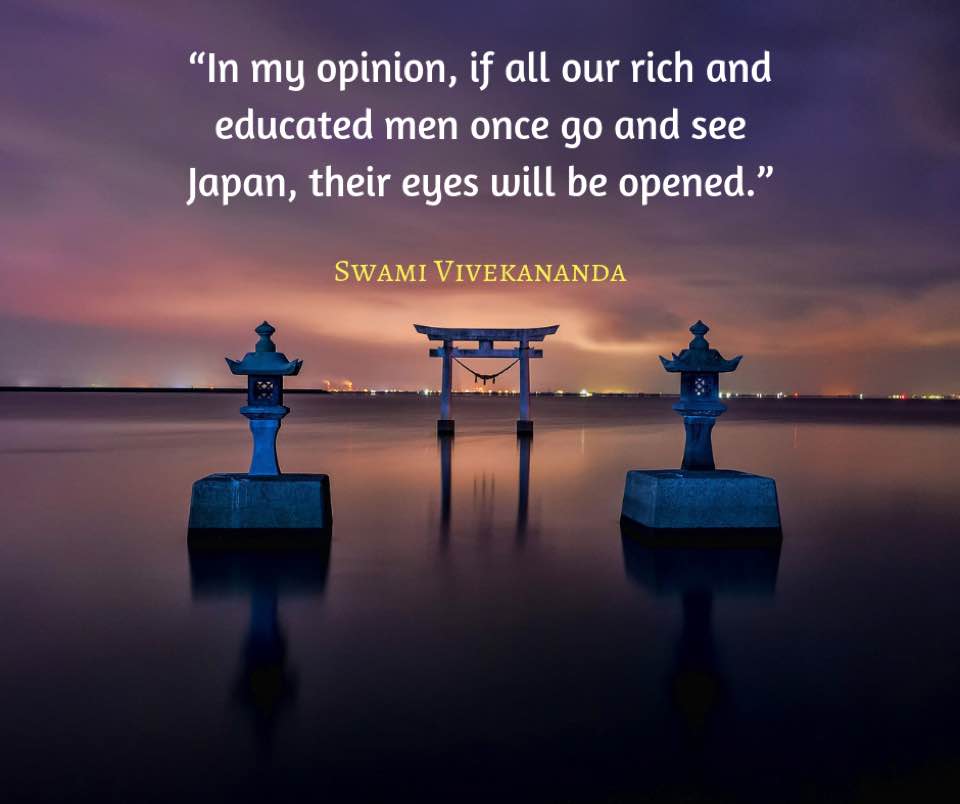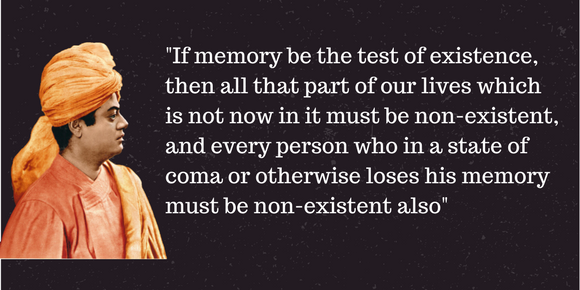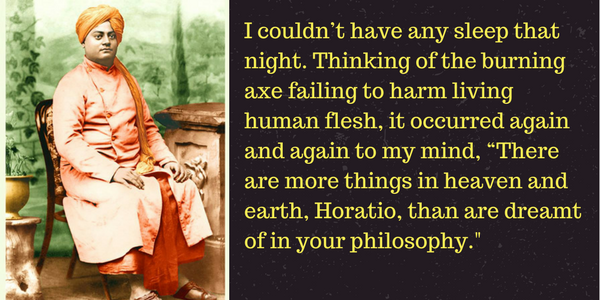The Vedic sacrificial altar was the origin of Geometry.
The invocation of the Devas, or bright ones, was the basis of worship. The idea is that one invoked is helped and helps.
Hymns are not only words of praise but words of power, being pronounced with the right attitude of mind.
Heavens are only other states of existence with added senses and heightened powers.
All higher bodies also are subject to disintegration as is the physical. Death comes to all forms of bodies in this and other lives. Devas are also mortal and can only give enjoyment.
Behind all Devas there is the Unit Being — God, as behind this body there is something higher that feels and sees.
The powers of creation, preservation, and destruction of the Universe, and the attributes, such as omnipresence, omniscience, and omnipotence, make God of gods.
“Hear ye children of Immortality! Hear ye Devas who live in higher spheres!” (Shvetâshvatara, II. 5). “I have found out a ray beyond all darkness, beyond all doubt. I have found the Ancient One” (ibid. III. 8). The way to this is contained in the Upanishads.
On earth we die. In heaven we die. In the highest heaven we die. It is only when we reach God that we attain life and become immortal.
The Upanishads treat of this alone. The path of the Upanishads is the pure path. Many manners, customs, and local allusions cannot be understood today. Through them, however, truth becomes clear. Heavens and Earth are all thrown off in order to come to Light.
The Upanishads declare:
“He the Lord has interpenetrated the universe. It is all His.”
“He the Omnipresent, the One without a second, the One without a body, pure, the great poet of the universe, whose metre is the suns and stars, is giving to each what he deserves” (Isha Upanishad, 8, adapted).
“They are groping in utter darkness who try to reach the Light by ceremonials. And they who think this nature is all are in darkness. They who wish to come out of nature through this thought are groping in still deeper darkness” (Isha, 9).
Are then ceremonials bad? No, they will benefit those who are coming on.
In one of the Upanishads (i.e. Katha) this question is asked by Nachiketâ, a youth: “Some say of a dead man, he is gone; others, he is still living. You are Yama, Death. You know the truth; do answer me.” Yama replies, “Even the Devas, many of them, know not — much less men. Boy, do not ask of me this answer.” But Nachiketa persists. Yama again replies, “The enjoyments of the gods, even these I offer you. Do not insist upon your query.” But Nachiketa was firm as a rock. Then the god of death said, “My boy, you have declined, for the third time, wealth, power, long life, fame, family. You are brave enough to ask the highest truth. I will teach you. There are two ways, one of truth; one of enjoyment. You have chosen the former.”
Now note here the conditions of imparting the truth. First, the purity — a boy, a pure, unclouded soul, asking the secret of the universe. Second, that he must take truth for truth’s sake alone.
Until the truth has come through one who has had realisation, from one who has perceived it himself, it cannot become fruitful. Books cannot give it, argument cannot establish it. Truth comes unto him who knows the secret of it.
After you have received it, be quiet. Be not ruffled by vain argument. Come to your own realization. You alone can do it.
Neither happiness nor misery, vice nor virtue, knowledge nor non-knowledge is it. You must realise it. How can I describe it to you?
He who cries out with his whole heart, “O Lord, I want but Thee” — to him the Lord reveals Himself. Be pure, be calm; the mind when ruffled cannot reflect the Lord.
“He whom the Vedas declare, He, to reach whom, we serve with prayer and sacrifice, Om is the sacred name of that indescribable One. This word is the holiest of all words. He who knows the secret of this word receives that which he desires.” Take refuge in this word. Whoso takes refuge in this word, to him the way opens.




Leave A Comment